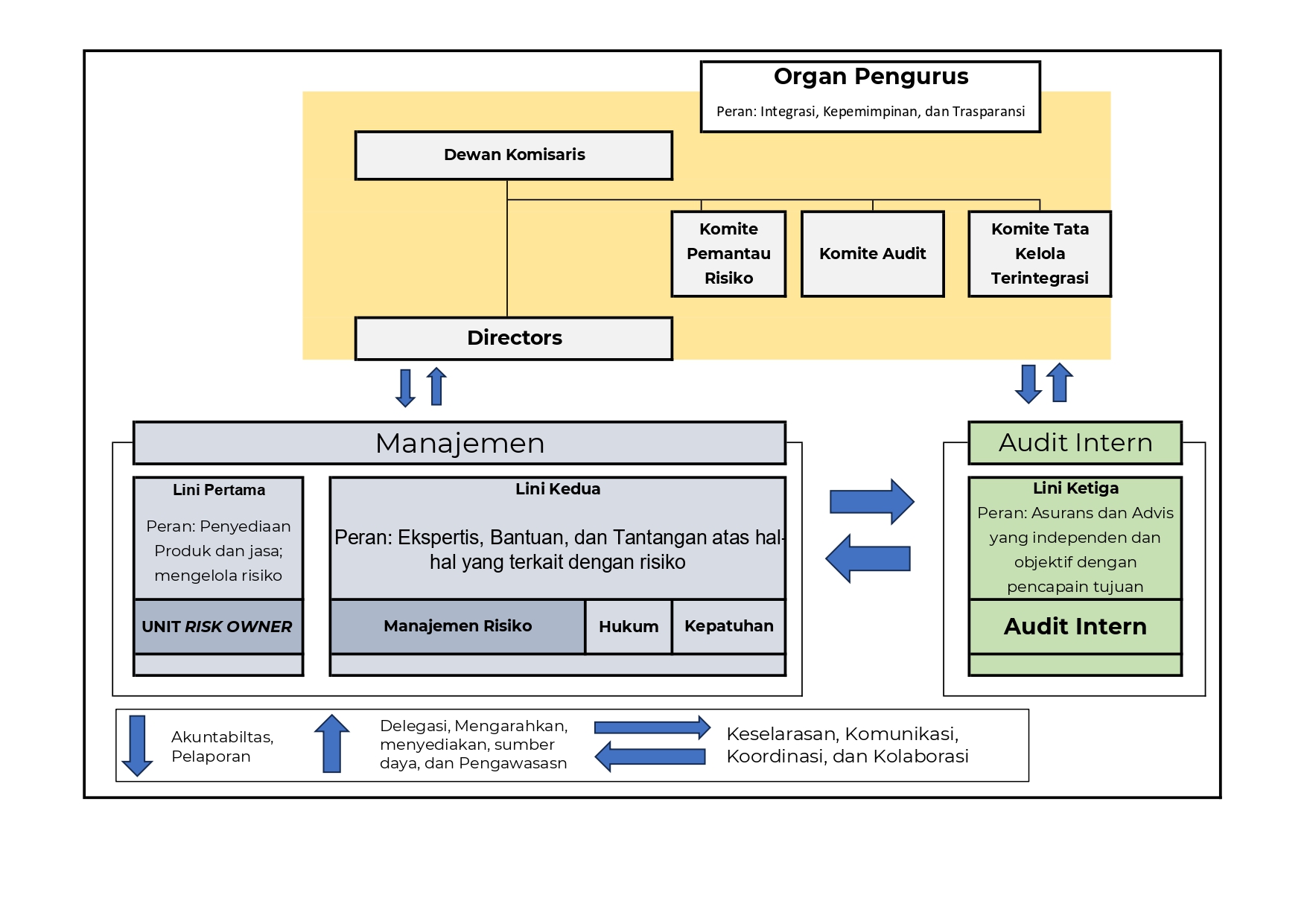📄 Policy List
🌱
⬇️
⚖️
Good Corporate Governance Guidelines⬇️
📜
Code of Ethics Guidelines⬇️
🤝
Supplier Code of Ethics Guidelines⬇️
📢
Whistleblowing System Guidelines⬇️
🛡️
Fraud Control System Guidelines⬇️
💼
Gratification Control Guidelines⬇️
⚠️
Risk Management Policy⬇️
🤝
Respectful Workplace Policy⬇️
🛒
Procurement Policy⬇️
✅
Management System Compliance Commitment⬇️
🔗
Integrated Management System Policy⬇️
⭐
Quality Management System Policy⬇️
🌍
Environmental Management System Policy⬇️
🤲
CSR Management System Policy⬇️
🏭
Production Management System Policy⬇️
🏢
Asset Management System Policy⬇️
🔬
Laboratory Quality Management System Policy⬇️
⚡
Energy Management System Policy⬇️
🚫
Anti-Bribery Management System Policy⬇️
📋
Compliance Management System Policy⬇️
🔄
Business Continuity Management System Policy⬇️
🔒
Security Management & ISPS Code Policy⬇️
🏗️
Green Building Management System Policy⬇️
💻
Information Technology Management System Policy⬇️
🚀
Industry 4.0 Management System Policy⬇️
Climate Risk Asssesment
Pupuk Kaltim telah mengidentifikasi physical risk yang merupakan dampak dari perubahan iklim yang memiliki dampak potensial atau signifikan terhadap keberlanjutan Perusahaan. Risiko iklim Pupuk Kaltim yang telah teridentifikasi sebagai berikut:
- Terlambatnya loading urea karena cuaca yang tidak menentu dan ekstrem, sehingga adaptasi yang dilakukan Pupuk Kaltim adalah dengan meningkatkan kecepatan loading urea curah dengan cara menggunakan 2 BSL sekaligus untuk loading urea ke 1 kapal, memerkuat infrastruktur pelabuhan dan fasilitas loading melalui penambahan atas pelindung
- Menurunnya kualitas produk karena terkena air hujan dari cuaca ekstrem badai. Adaptasi yang dilakukan oleh Pupuk Kaltim adalah penggunaan container untuk distribusi urea kantong, melakukan pembangunan atau renovasi infrastruktur dengan mempertimbangkan factor-faktor iklim
- Terlambatnya kedatangan kapal sampai distribusi ke Gudang lini II dan III karena cuaca ekstrem badai yang dapat mengganggu distribusi dan pendapatan Perusahaan, reputasi dan kepercayaan konsumen. Adaptasi yang dilakukan oleh Pupuk Kaltim adalah dengan membuat aplikasi Distribution Planning and Control System (DPCS) dengan pemasangan GPS pada kapal untuk mengetahui posisi kapal secara real time, memiliki beberapa rute pengiriman yang berbeda untuk menghindari area yang rawan terkena dampak badai
- Terlambatnya kedatangan kapal bahan baku pupuk NPK karena cuaca ekstrem badai yang mengakibatkan terhambatnya operasional pabrik, terganggunya reputasi dan menurunnya tingkat kepercayaan konsumen. Adaptasi yang dilakukan adalah dengan melakukan pengaturan ulang jadwal produksi pupuk untuk menghindari kekurangan pasokan dan memastikan bahwa stok yang ada dapat mencukupi permintaan, pencarian sumber bahan baku alternatif yang lebih cepat, mengoptimalkan stok bahan baku yang ada, melakukan komunikasi dengan pelanggan, melakukan inovasi dengan pemanfaatan teknologi dalam memantau kondisi cuaca secara real time.
- Berkurangnya efektivitas pendingin sweet cooling water karena adanya peningkatan suhu air laut, yang berdampak pada tidak optimalnya pendinginan pada proses produksi sehingga produksi menurun dan tidak efisiennya proses produksi. Adaptasi yang dilakukan oleh Pupuk Kaltim adalah dengan melakukan adjustment kondisi operasional termasuk menurunkan rate produksi, menambah kapasitas Marine Plate Heat Exchanger (MPHE) untuk memperbesar heat transfer antara sweet cooling water dengan air laut.



